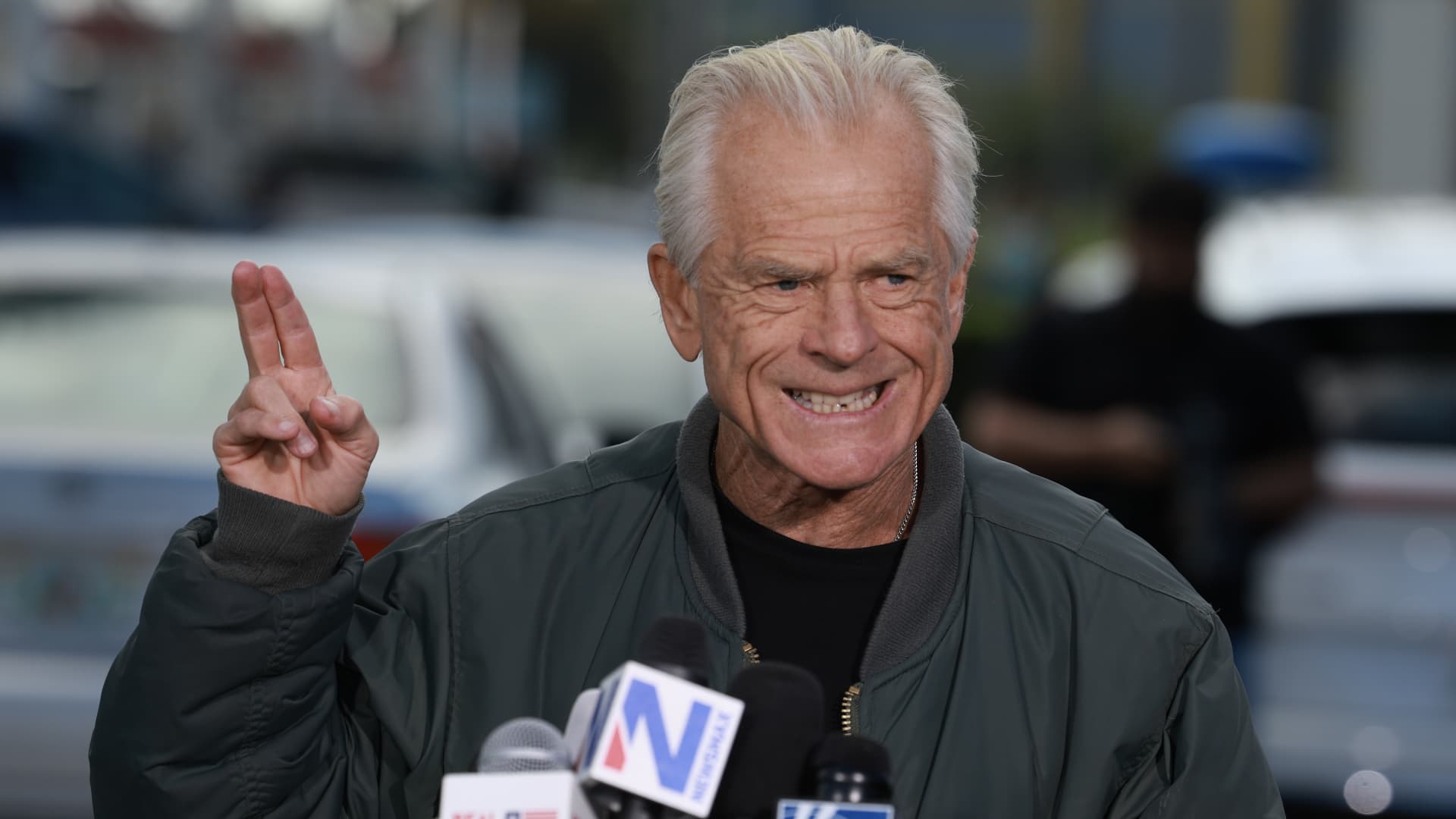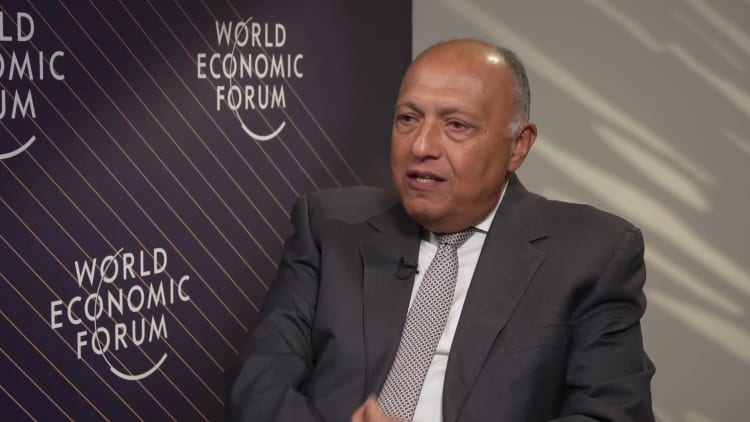When President Biden hung up, he had finally made the threat he had rejected for months: Israel must change course, he told Prime Minister Benjamin Netanyahu, or the United States would.
But as the conversation ended Thursday, aides to Mr. Biden said, the president had reason to hope that the message had gotten through and that he would not have to follow through on his threat after all.
During the call, Mr. Biden outlined several specific commitments he believes Israel should make to avoid losing its support for the war against Hamas. Instead of pushing back, Mr. Netanyahu promised that he would announce more humanitarian aid for Gaza within hours, according to people briefed on the call, and signaled that he would respond to Mr. Biden’s other demands in the coming days.
Mr Netanyahu’s government followed suit later in the night, approving the opening of a key port and another land crossing for food and other supplies. The White House expects Israel to soon adopt new military procedures to prevent the killing of civilians and aid workers, and administration officials will be watching closely this weekend when Israeli negotiators meet with William J. Burns, the CIA director, and Join Egyptian and Qatari mediators in Cairo to try again to negotiate a temporary ceasefire.
Whether it will be enough to prevent the rift that Mr. Biden never wanted in the first place remains uncertain. Administration officials insisted that the president’s threat was not unfounded and that he was, as one described him, “very strident” as he made his case to Mr. Netanyahu. At the same time, officials said Mr. Biden did not explicitly threaten during the call to restrict or cut off U.S. arms shipments, as some Democrats have urged him to do, nor did he set a deadline for Israeli action. The “or else” remained unclear and undefined.
“Biden has put Netanyahu on probation,” said Aaron David Miller, a longtime Middle East peace negotiator now at the Carnegie Endowment for International Peace. The president “doesn’t want to fight and has given him a test that he can pass, certainly in terms of humanitarian aid and perhaps in negotiations with Hamas.” The red lines in the US are tending to turn pink. The only question is: Does Netanyahu want to fight?”
At least some in Israel suspect this is not the case. Just as Mr. Biden can now tell recalcitrant members of his party that he is taking the tougher stance they pushed him to take, Mr. Netanyahu may be able to use the heat from Washington to make changes that would otherwise be politically problematic for him.
“By signaling a possible change in U.S. policy toward Israel, President Biden gave Prime Minister Netanyahu the leverage to overcome the right-wing extremists in his administration and secure his approval of a significant increase in humanitarian assistance to Gaza,” said Michael B. Oren , a former deputy minister under Mr. Netanyahu and Israeli ambassador to the United States.
None of this means that the two sides are certain to avoid a decisive conflict. Their respective views, goals and political pressures regarding the war against Hamas differ significantly. Mr. Biden is ready to end the war as quickly as possible, while Mr. Netanyahu has an interest in expanding it. So many moments that seemed like turning points in the last six months have turned out to be illusory.
But the hope in the White House is that the president has given himself some room to maneuver. On Friday, officials welcomed the first Israeli humanitarian aid announcements as evidence that Mr. Biden could deliver.
“We have seen some welcome announcements from the Israelis,” John F. Kirby, a White House national security spokesman, told reporters in a briefing. “They responded to the president’s wishes that emerged from that call. You start to see it for yourself.”
Still, Mr. Kirby was careful not to declare victory. “Those were just announcements,” he said. “We need to see results. We need to see sustainable results here over time. It’s not enough to just announce it, but they have addressed some of the president’s very specific requests.”
In his only public comments since the call, Mr. Biden did little to elaborate on his thoughts. Asked by reporters before he boarded Marine One to travel to Baltimore whether he had threatened to cut off military aid if Israel did not respond to his concerns, the president replied simply: “I asked them to do what they do.” But he scoffed at the idea that he might abandon Israel. “Is that a serious question?” he said.
Some Republican critics accused him of doing just that. “The president’s ultimatums should be directed at Hamas, not Israel,” spokesman Mike Johnson wrote on social media. “Hamas defied a ceasefire, caused unnecessary bloodshed and refused to release Israeli and American hostages. Biden should not undermine our allyship in the midst of an existential threat by conditioning our support.”
On the other hand, at least some Democrats were not convinced that Mr. Biden had gone far enough. Senator Tim Kaine of Virginia praised the president for persuading the Israelis to provide more humanitarian aid. “But this was an obvious solution that should have happened months ago,” he said in a statement.
“The current approach is not working,” he added. The Biden administration should “prioritize the transfer of defensive weapons in all arms sales to Israel, while withholding bombs and other offensive weapons that can kill and injure civilians and humanitarian workers.”
Mr. Biden’s threat to Mr. Netanyahu was prompted by the killing of seven laborers for World Central Kitchen this week, which Kirby said “shocked” the president. Israel sent the results of its investigation to the United States on Friday and fired or expelled five military officers involved in the attack, but none of those moves satisfied critics calling for an independent investigation. Mr. Kirby said American officials would “consider carefully” before making a judgment on the Israeli investigation.
“This incident and the call between Biden and Bibi could represent an important shift in the order of priorities as protection of civilians and humanitarian assistance become higher,” said Brian Katulis, a senior fellow at the Middle East Institute, a Washington think tank from Mr. Netanyahu. “But it remains to be seen what impact this will have. We’ll have to see how this all develops in the next few weeks.”
The extent of American influence over Israel’s conduct of the war is complicated. Mr Biden has repeatedly defended Israel’s right to respond to the Hamas terror attack that killed an estimated 1,200 people on October 7. But with the reported death toll in Gaza topping 32,000, Mr. Biden has increasingly complained in recent weeks that Israel’s military operation was “excessive,” as he once called it.
He has particularly warned Israel against sending troops to the city of Rafah in the southern Gaza Strip, where more than a million refugees are seeking refuge from war without a credible plan to protect civilians. Mr. Netanyahu has openly defied Mr. Biden in public, saying he plans to target Rafah to persecute Hamas leaders despite American pressure. But it has been about two months and he has not yet done so, pending further consultations with the Americans.
Khaled Elgindy, a former adviser to Palestinian leaders in previous peace talks with Israelis, said Mr. Biden’s transformation was notable, if belated. “The tone of the president’s statement is definitely more terse and stern than what we’ve heard before,” he said. The connection between U.S. policy and Israeli changes “is very different from what we regularly hear from Biden administration officials about not telling a sovereign state what to do.”
“Well, it looks like we’re going to tell them what to do now,” Mr Elgindy said. “Still, it’s not exactly clear what the ‘or else’ will be. Will they actually withhold military aid? I have my doubts. Could they allow a more forceful ceasefire solution in the United Nations Security Council? “Possibly.”
Frank Lowenstein, a former special envoy for Middle East peace under President Barack Obama, said the killing of the World Central Kitchen workers sparked a profound reaction from Mr. Biden.
“Biden was obviously angry enough to actually get Bibi’s attention,” he said. “But the jury is still out on whether anything has actually changed for us or the Israelis. At this point it is still mostly rhetoric. Bibi’s political pendulum temporarily swung from pandering to the extremists in his coalition to appeasing Biden.”
But the steps announced so far, Mr. Lowenstein added, “are really small steps that will not significantly change the terrible conditions for civilians in Gaza.” And it would be typical of Bibi to announce the minimal steps necessary to make significant ones Avoiding consequences and then slowing implementation after the heat dies down.”
Source link
2024-04-06 02:56:09
www.nytimes.com







